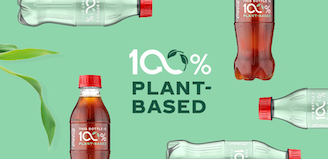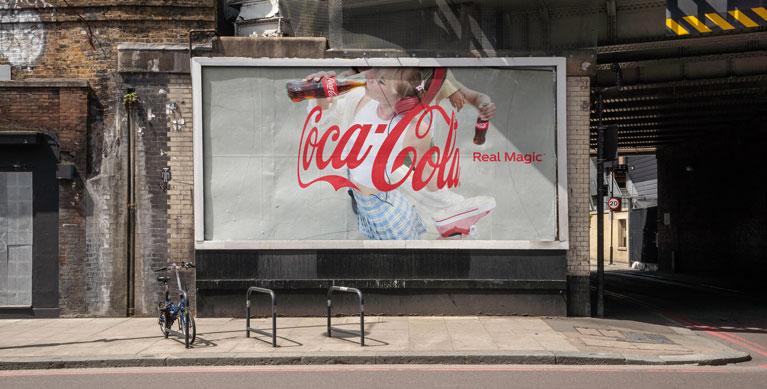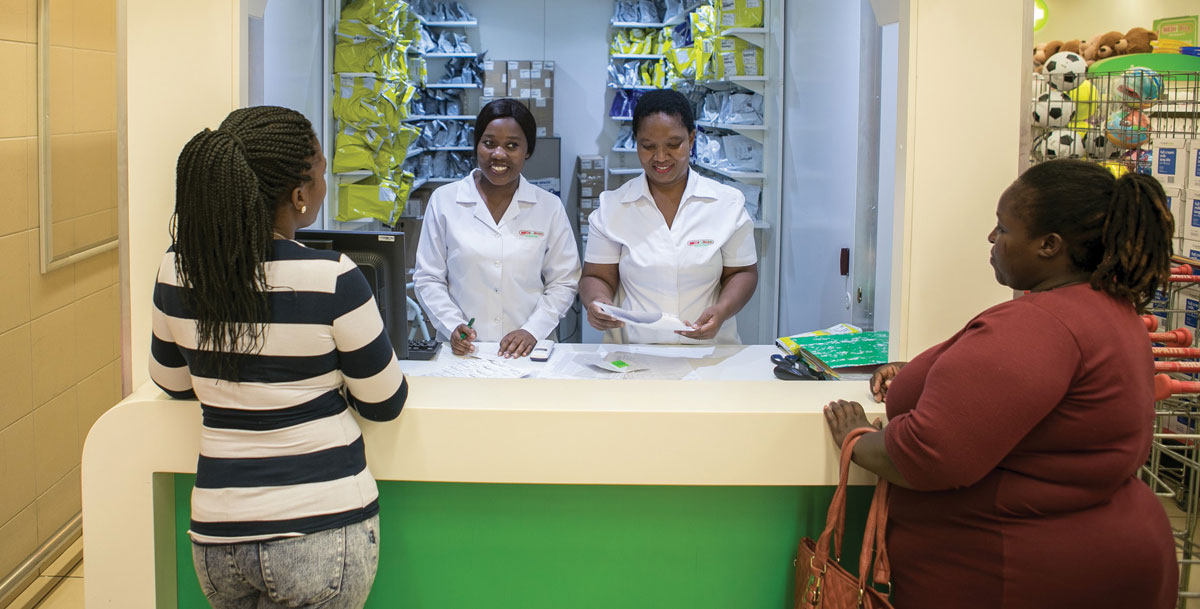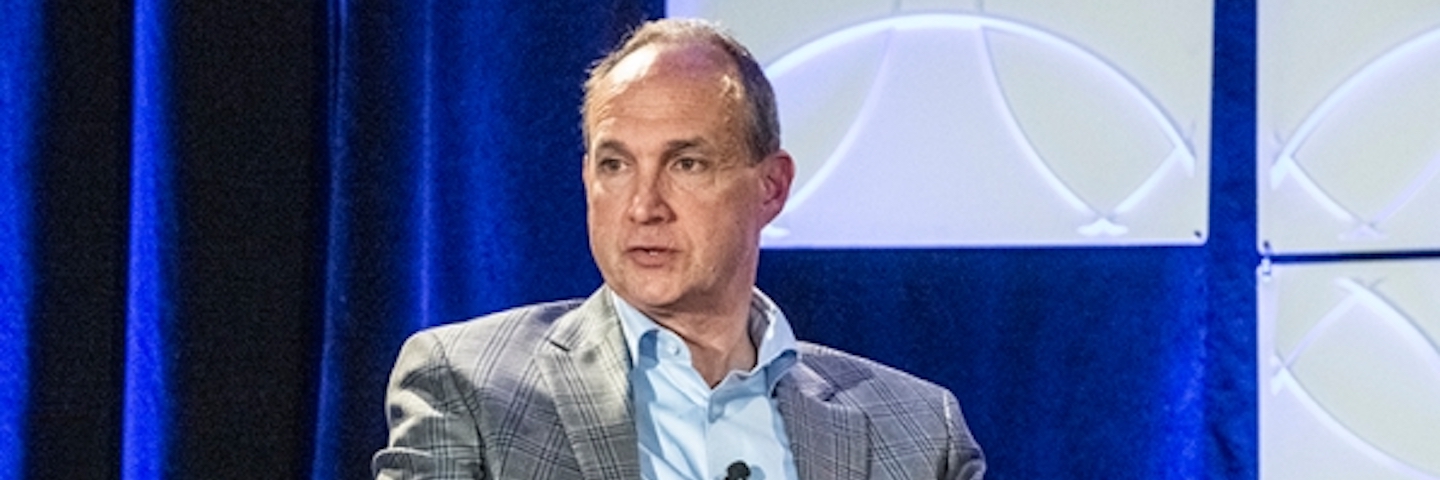
How Coca‑Cola North America is Growing its Total Beverage Business in a Sustainable Way
Continued Success in Our Flagship Market
05-03-2019
CHICAGO – The Coca‑Cola Company’s continued success in its flagship market will be fueled by a focus on meeting the fast-changing demands of consumers, employees and communities, Coca‑Cola North America President Jim Dinkins told industry colleagues this week at The Beverage Forum.
“Our next chapter will focus on moving with greater speed, and doing so responsibly,” Dinkins said, noting that Coca‑Cola has gained total beverage value share nine consecutive years. “We remain focused on accelerating our momentum as a total beverage business by giving people more of the beverages they want for every occasion in their lives – including drinks with less sugar, more functional benefits and different package sizes.”
The $200 billion nonalcoholic, ready-to-drink (NARTD) beverage industry in the U.S., which is coming off its strongest year of growth since 2015, is expected to grow by nearly $20 billion in retail value over the next three years.
Because Coke can currently claim only one of the eight beverages Americans drink each day, Dinkins sees as an opportunity. “As we continue diversifying our portfolio to meet new and emerging trends, we see huge opportunity to capture more of those every day occasions,” Dinkins said. “Our aspiration is to offer great, consumer-preferred brands for every different desire, occasion or need in their daily lives.”
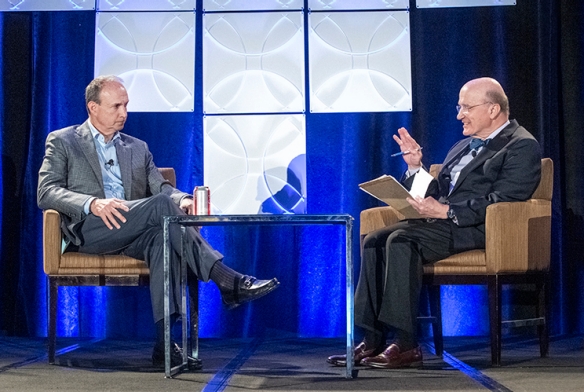
Following the Consumer
'Our next chapter will focus on moving with greater speed, and doing so responsibly. We remain focused on accelerating our momentum as a total beverage business by giving people more of the beverages they want for every occasion in their lives – including drinks with less sugar, more functional benefits and different package sizes.'
Consumers want more choices, convenience and customization, and they expect the companies and brands they support to lead on societal issues. Coca‑Cola North America is meeting these demands by innovating and expanding its beverage portfolio, launching 100 new products in 2018 and kicking off 2019 with the rollout of brands like Coca‑Cola Orange Vanilla, Sprite Lymonade, smartwater alkaline and antioxidant, and smartwater sparkling flavors.
Retail sales of Coca‑Cola North America’s sparkling soft drinks were up nearly 4% last year in Nielsen measured channels, and continued this momentum in the first quarter of 2019. Dinkins cited the steady performance of Coke Zero Sugar, which has posted double-digit retail dollar growth for six straight quarters, and the turnaround of the newly relaunched Diet Coke, which boosted retail dollar sales in 2018 after more than five years of decline. Sales of Coke’s 7.5-oz. mini can portfolio also continues to climb.
Investments in premium brands like BODYARMOR, Topo Chico and fairlife are bearing fruit and boosting Coke’s profile in the fast-growing categories of hydration and dairy. The company also is innovating in premium juice and juice drinks via new packaging and low- and no-sugar offerings like Simply Light, which has posted double-digit growth since launching in 2018.
“These are all high-growth categories where consumers are demanding more choice than ever before,” Dinkins said.
Driving Recycling in Coke’s Backyard And Beyond
Delivering more beverages people want comes with responsibility. Dinkins shared ways Coca‑Cola North America is helping reduce plastic pollution in support of the company’s “World Without Waste” goal to collect and recycle the equivalent of a bottle or can for each one it sells globally by 2030 and increase use of recycled/renewable content to 50 percent of its packaging in same timeframe.
Coca‑Cola is tapping into its marketing expertise to inspire consumers to rethink the benefits recycling can have in local communities. The company and its bottling partners are collecting plastic bottles from local communities and using them to create items communities need most. Digital and print advertising will share stories of the bottles’ journey to become something new and good that it brings to local communities.
The Coca‑Cola Foundation also is awarding grants to environmental organizations in seven cities to support local recycling initiatives. In Coke’s hometown of Atlanta, The Recycling Partnership and the City of Atlanta will deploy street teams 100,000 households to “tip” open recycling carts and “tag” them with tips and feedback. A small-scale pilot in 2017 drove a 57% percent in recycling collection.
“By scaling this program more broadly, we hope to recover our packaging footprint in Atlanta within the next three years – well ahead of our 2030 goal,” Dinkins said. “And ultimately, we hope to scale our learnings to more cities around the country.”
He added, “But we can’t do it alone. Our industry has come together before to tackle big challenges, like helping consumers reduce sugar through the Balance Calories Initiative. By working together, once again, we will prove that our industry has what it takes to lead on societal issues that affect us all.”
Building a Culture of Growth
At the heart of this growth agenda is an empowered, entrepreneurial employee culture. Dinkins noted that investing in people and culture is one of his personal passions and a top business priority.
Increasing diversity in both background and perspective across Coca‑Cola North America organization remains a top priority, he said, and the company is encouraging teammates to take smart risks and embrace an agile, test-and-learn mindset. For example, The Grand Challenge initiative invites employee teams to come up with creative solutions to key business challenges. Top ideas receive funding and resources.
“Ultimately, the progress I’ve shared with you today is only made possible by an empowered team and a culture that unleashes their full potential,” Dinkins concluded.
